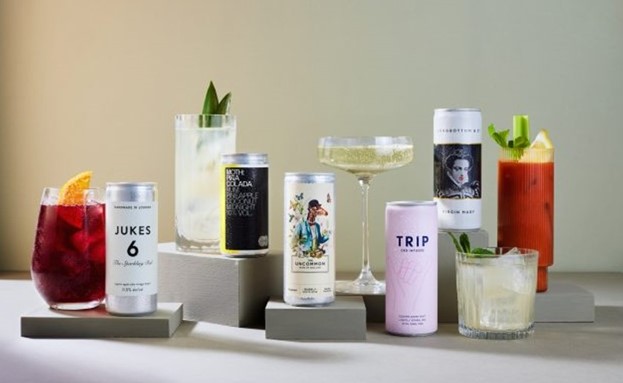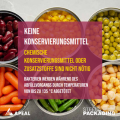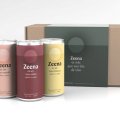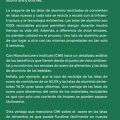Five UK-based premium RTD brands have joined forces to ask retailers to continue offering cans despite significant pub and restaurant closures. Henry Connell, co-founder of The Uncommon, shared the open letter with db.
Forced together for a cause is the basis of ‘The Canifesto’, an initiative led by brands RTD Uncommon, Moth Drinks, Longbottom & Co, Jukes Cordialities and Trip. This open letter compiles information on the positive effect that the adoption of aluminum cans has had on all sectors related to tourism, with companies such as Berners Tavern, Liberty Wines and British Airways being endorsers of quality.
Connell, founder with Alex Thraves of The Uncommon, described the collective as five distinguished brands that had been successful in retail and travel. He also concluded that the trade sector needed to move towards this example.
The letter suggests that cans represent the best option to offer individual service, while simultaneously helping to reduce waste, save money and conserve space. It is therefore recommended that public places, especially bars and restaurants, carefully evaluate the environmental benefits of canned products.
Connell added, “I think there is a misconception that cans are inferior to other formats. We solve a sustainability problem, we solve a time problem and we solve a quality problem.”
The letter focused on the use of aluminum highlights its benefits, as it is easier to recycle and conserves most of what is produced. In addition, it is mentioned that being lightweight makes it cheaper to transport and that less material is needed to protect it during transport.
Connell further noted that single-use containers are highly beneficial in minimizing liquid waste by containing compounds in them. The idea is that what remains inside the container at the end of the service (especially the wine) is not spilled under any circumstances, thus generating less waste, both liquid and material.
The five RTD brands argue in their open letter that the use of single-format cans allows for consistent quality at high speed without having to train staff. But Connell said brands have had “a lot of pushback” from bars and restaurants in particular.
Although wine is one of the most traditional beverages, canned craft beer has been reaching a popularity that goes beyond that. According to Connell, it would then be necessary to have conversations with sommeliers and bar owners to educate them about the benefits of the canned product. Certain circumstances such as high turnover or outdoor bars are needed where the use of these containers works best.











